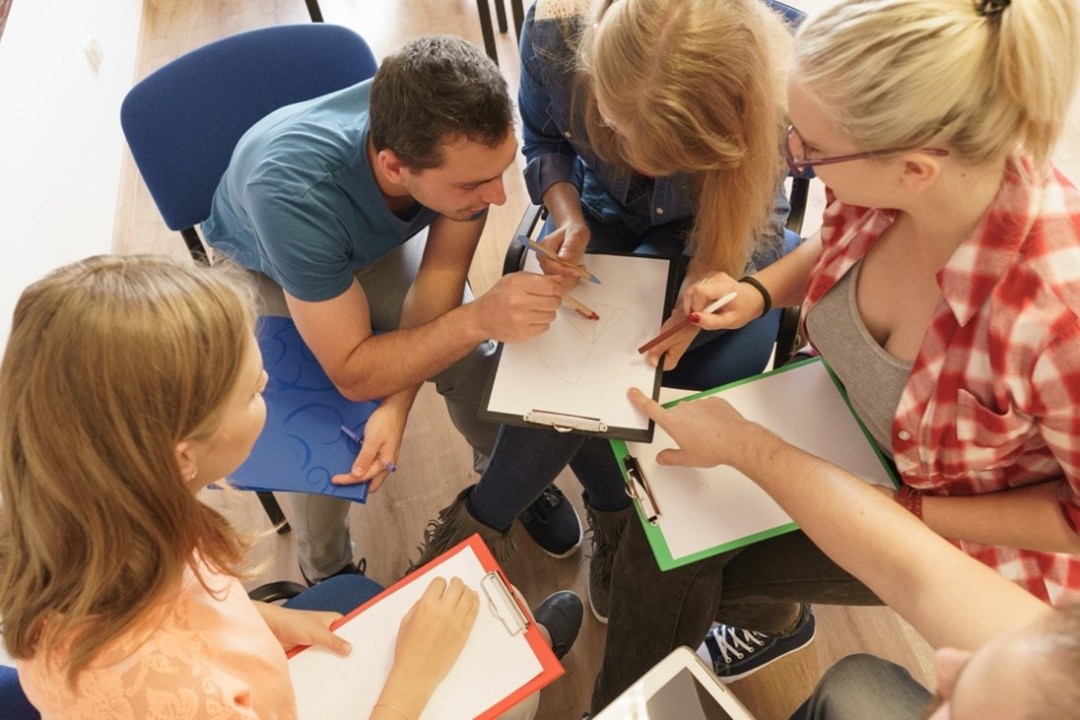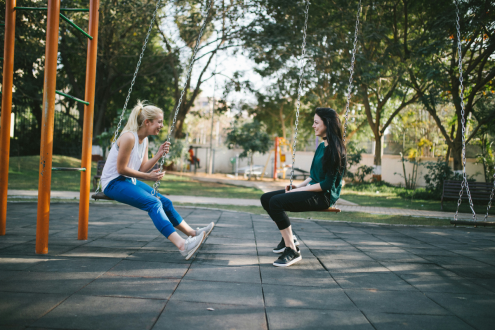How our Communication Preferences affect the way we learn.
In the blog Ollie Coach, Belinda Wells, explains the different communication styles and how this affects our learning. Being aware of these different styles can help you build relationships and also make teaching much easier.

Communication and learning styles are very closely linked. And they are also extremely important! When learning, we learn best if the person teaching us uses our preferred communication and learning style too. We all have, and are able to use, all the learning and communication styles, and we do. But we usually have a preferred style, or sometimes a combination of styles.
Visual learners will learn by watching something work or looking at what the teacher draws or writes on the board. They will use instructions with pictures, diagrams and charts.
Auditory learners would respond best to voices in a lecture or group discussion. They will often repeat back what is said to them as it reinforces what they have heard.
Kinaesthetic learners are very hands on in approach and will learn by doing something rather than watching or listening. They would rather try something out or walk through a process.
Auditory Digital learners enjoy detail and having order in things. They will use any of the three methods but will especially want to make sense of things. When teaching someone with an AD preference, they will home in on the details.
Which is your learning Style? Well, it will be the same as your preferred Communication Style.
You can find out by thinking about how you would approach learning something new. If you were on a course, what style of presentation do you prefer? Do you like seeing charts, visual aids or slides? Is the speakers voice or listening to what they are saying more important to you? Do you prefer to try things out and join in?
Imagine yourself in an uncomfortable situation. This will be when you will revert to your preferred style. If you were lost, how would you find your way? Would you use a map, ask someone for directions, or just keep walking until you worked out where you were? Again, if you would make use of any or all of those options in order to make sense of your whereabouts, you are most likely Auditory Digital.
If your children don’t get on in a particular class or with a particular teacher, or if they don’t get on with a sibling or peer it could be due to a mismatch in learning and communication styles. Think about the people around you and how they communicate and learn. You may have a different style to your child. So, if you are a teacher, lecturer, therapist or coach it is especially important that you use all four styles in order to keep everyone in your audience engaged.
To help you discover how children may learn best, you could get them to tell you about a picture, You can listen to the sort of words they use to work out how they think and learn.
In this scene, a visual learner may describe the sights perhaps saying how blue the sea is, how beautiful the scenery is and how brightly the sun is shining. An Auditory person would perhaps talk about the sounds, mention the seagulls calling, people chattering, the sound of the waves splashing or the wind rustling through the windbreaks. A Kinaesthetic person might tell you how they were feeling and refer to the warm sun beating down on them, the feel of the sand between their toes and the happy atmosphere. An Auditory Digital person would describe the details. Maybe tell you how they got there their route, where they are sitting, what time it is, how many people are there and what they are doing. Or they may even want to know why you are asking!
beautiful the scenery is and how brightly the sun is shining. An Auditory person would perhaps talk about the sounds, mention the seagulls calling, people chattering, the sound of the waves splashing or the wind rustling through the windbreaks. A Kinaesthetic person might tell you how they were feeling and refer to the warm sun beating down on them, the feel of the sand between their toes and the happy atmosphere. An Auditory Digital person would describe the details. Maybe tell you how they got there their route, where they are sitting, what time it is, how many people are there and what they are doing. Or they may even want to know why you are asking!
Being aware of how others communicate and learn can help you in developing relationships quickly and easily and make teaching people much easier. Good communication is so important in building rapport with people, both in your personal life and at work. And communication is probably the most important element in teaching and learning too.
Belinda Wells, Ollie Coach
Belinda is an Ollie Coach and Foster Carer. Previously a Primary School Teacher, she now has over 20 years’ experience working with children. Her interests are psychology, how we think and why we behave as we do, and she loves learning and writing. Belinda enjoys seeing the difference her work as an Ollie Coach can make to the children and families she works with.
To get in contact with Belinda email Belinda.wells@ollieandhissuperpowers.com
To find out more about Ollie and his Super Powers and how to become an Ollie Coach go to https://www.ollieandhissuperpowers.com/pages/about-us
Caroline Chipper
Director
Co founder of Subconquest Ltd, that trades as Ollie and his Super Powers. My many years of commercial experience is being put to good use managing the business side of Ollie, including working with our Ollie Coaches, and managing our contracts. In everything we do its about making a difference to those we work with. To find out more go to https://www.ollieandhissuperpowers.com/pages/about-us


